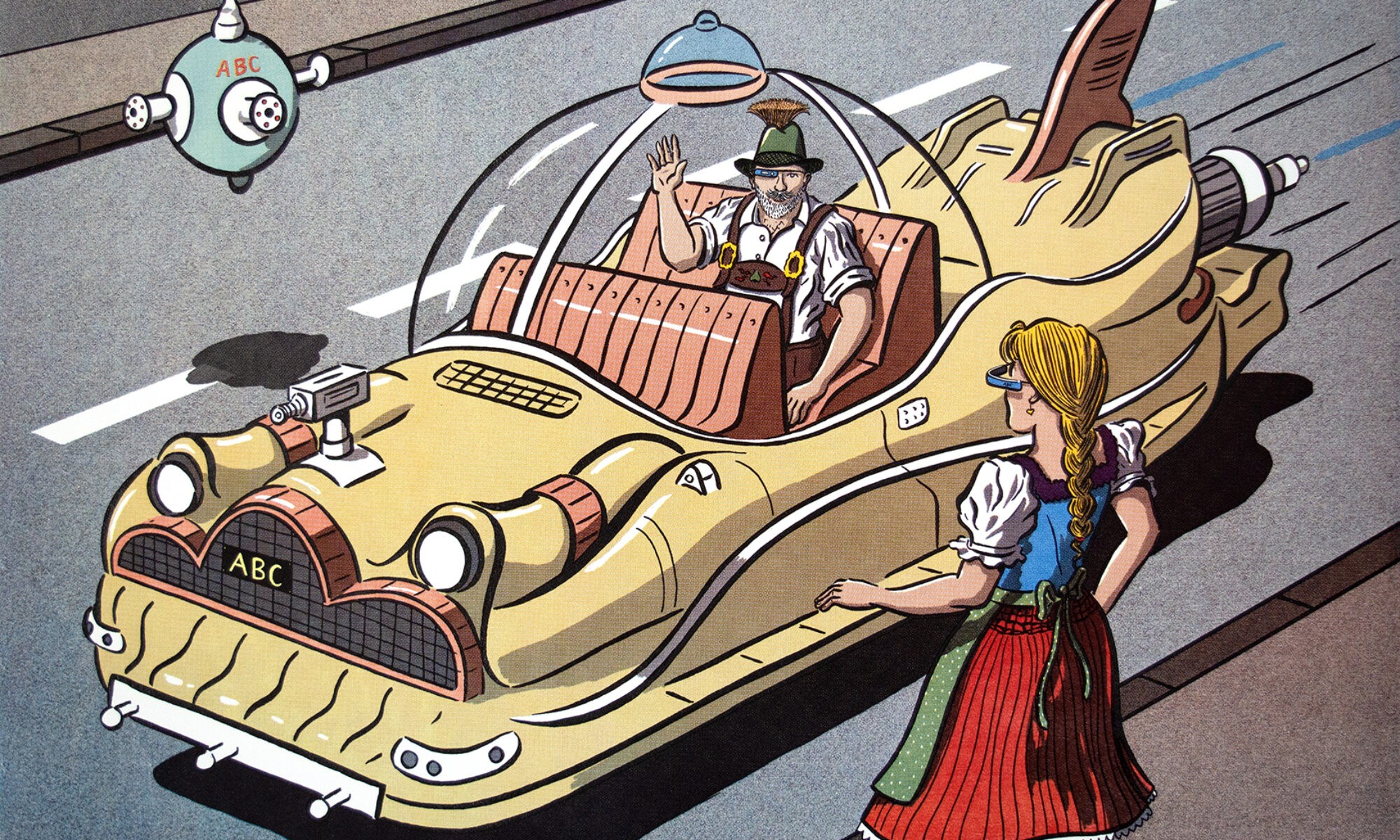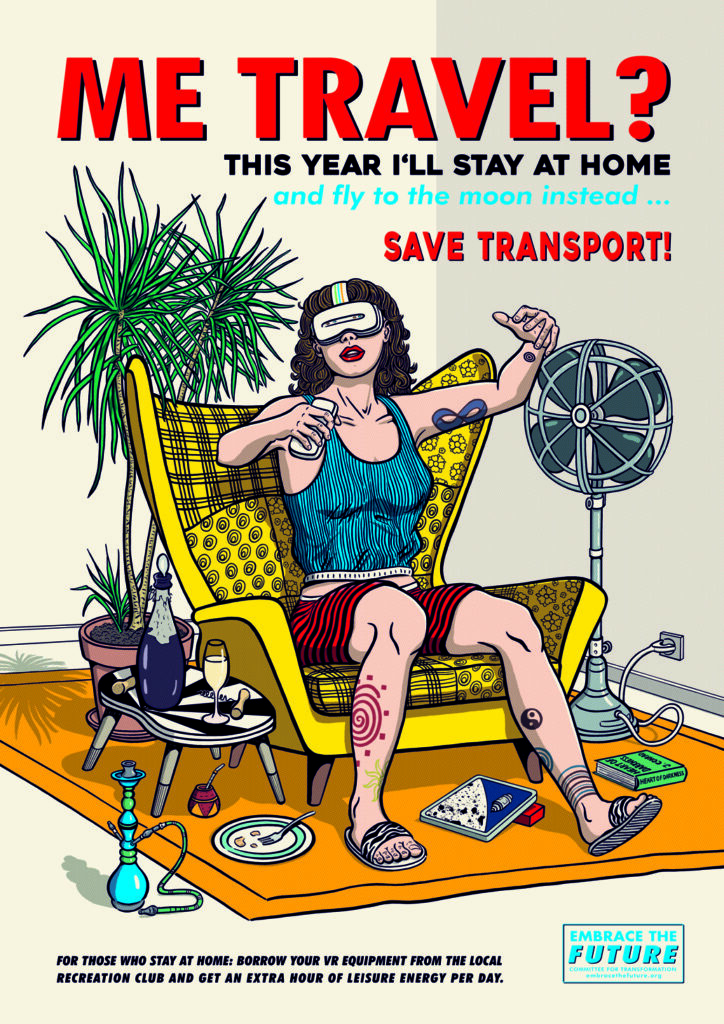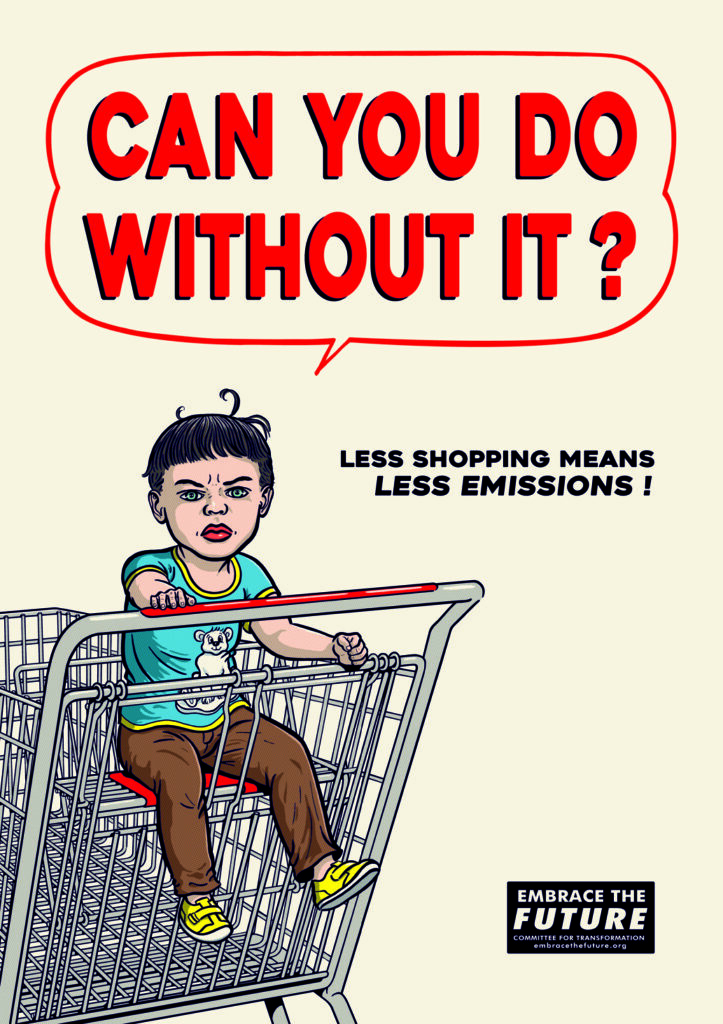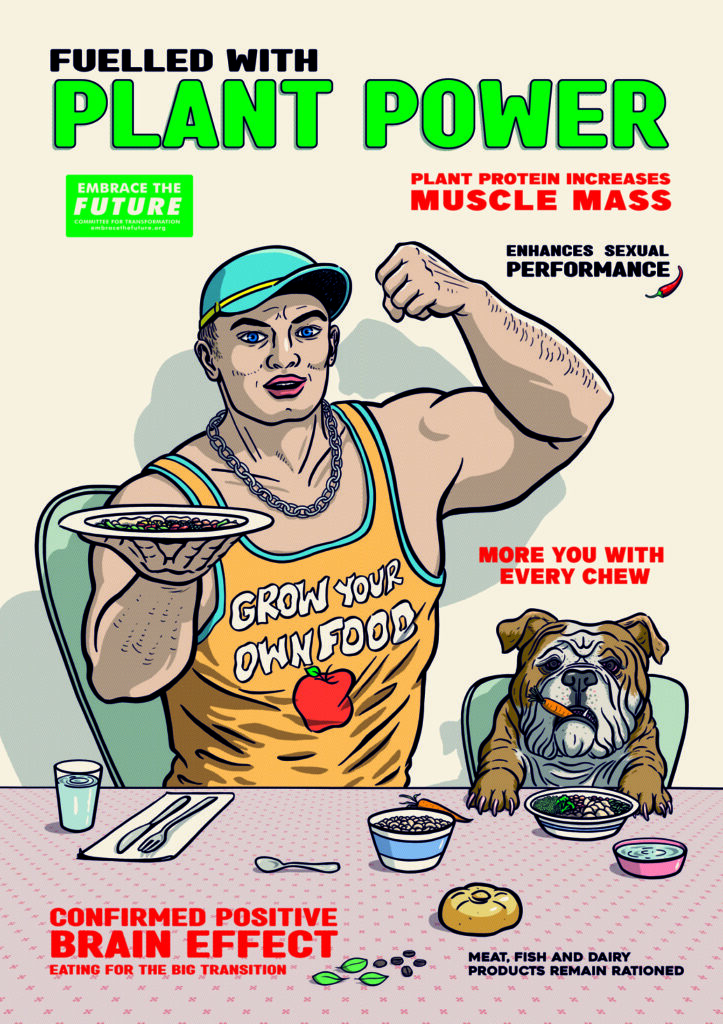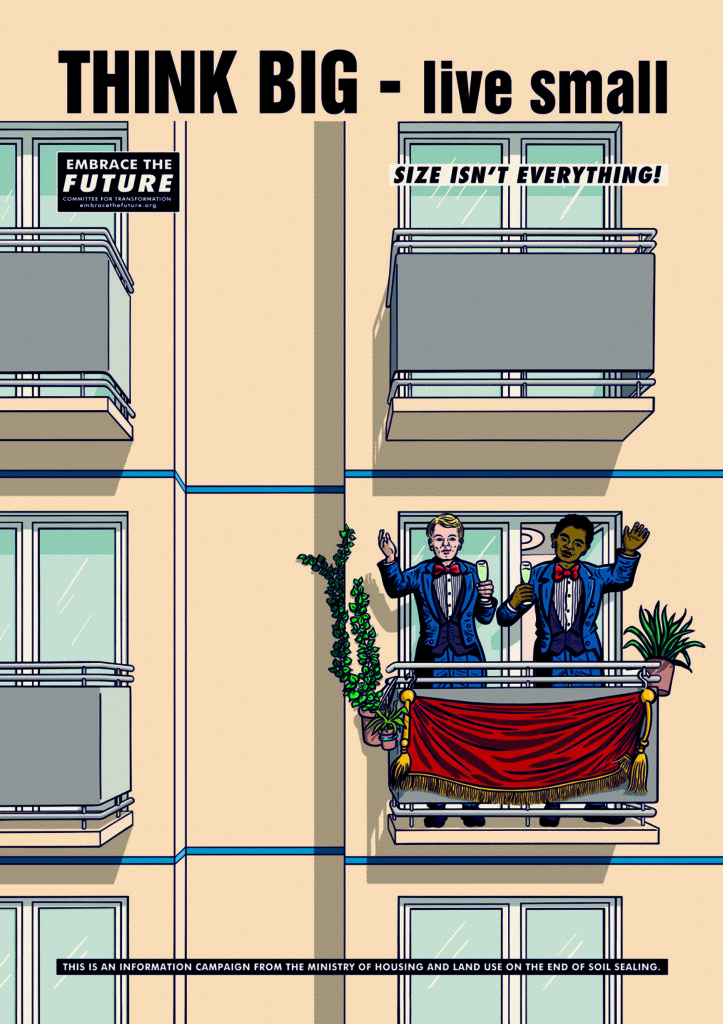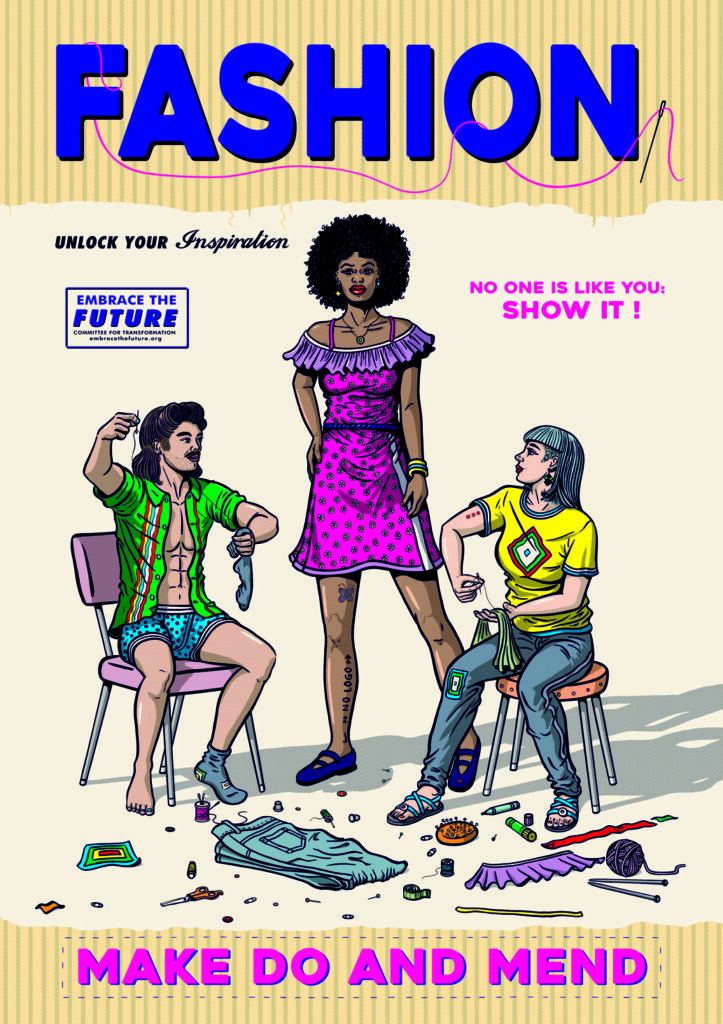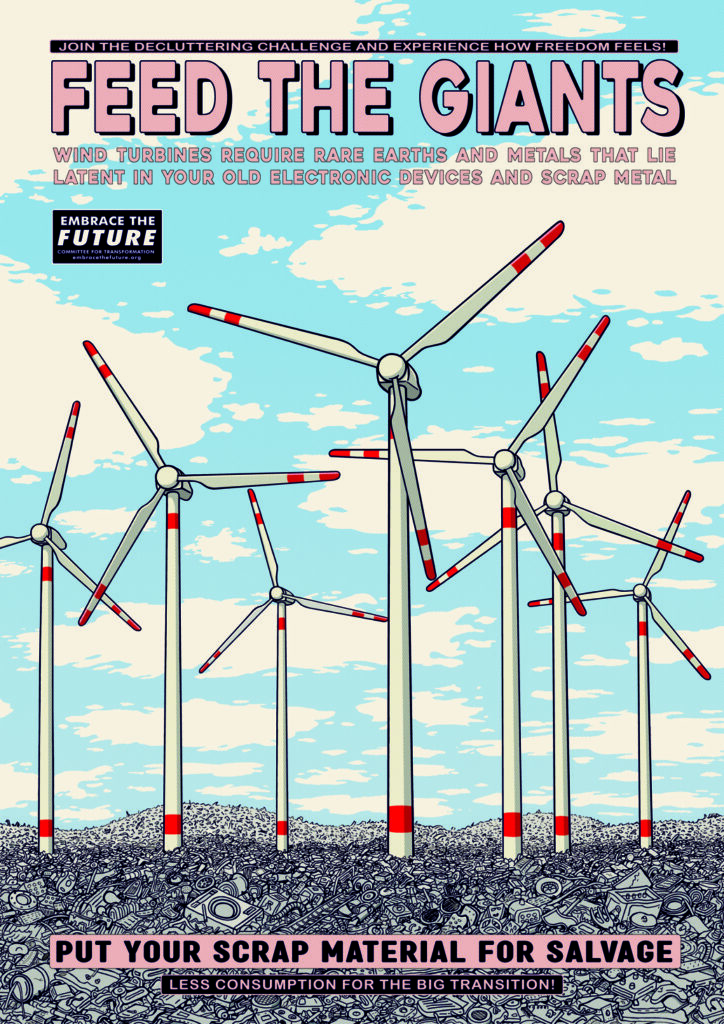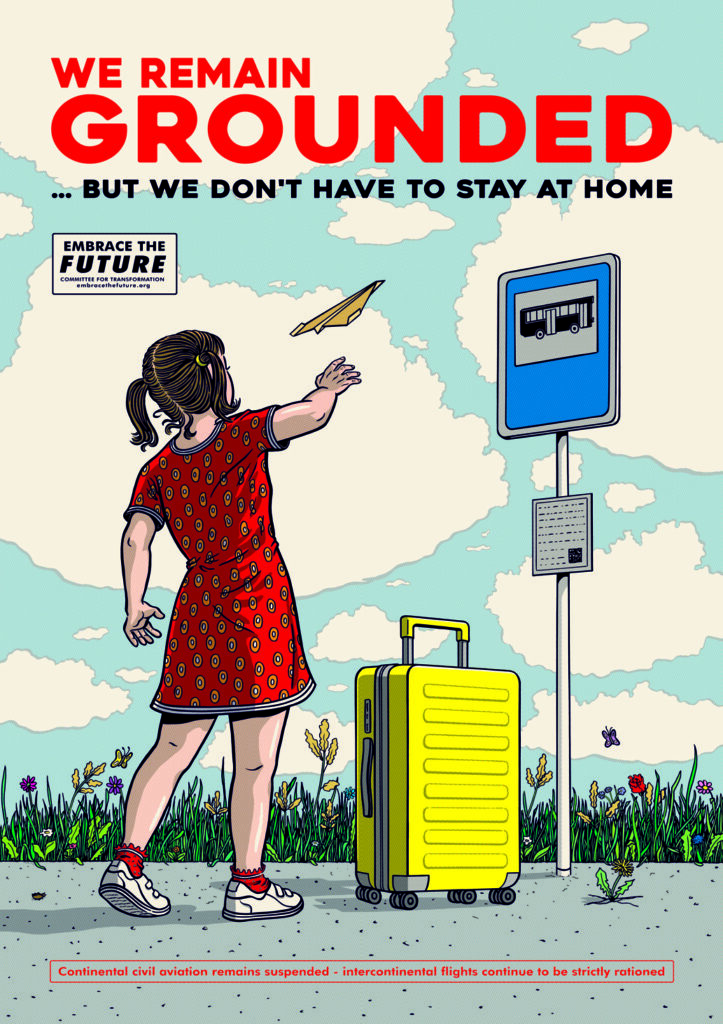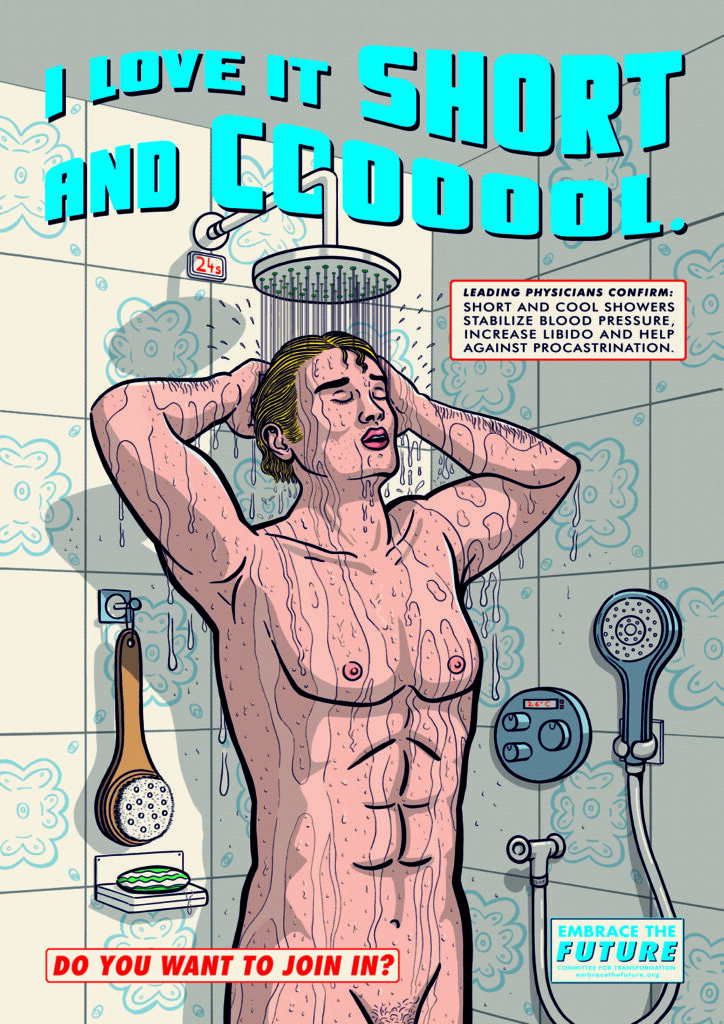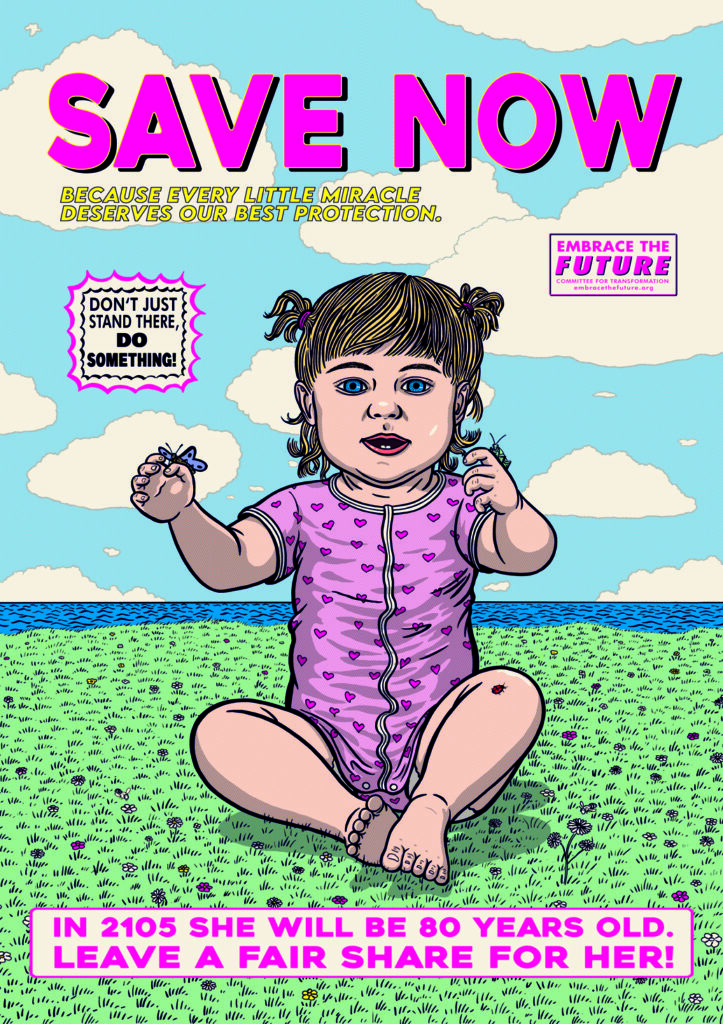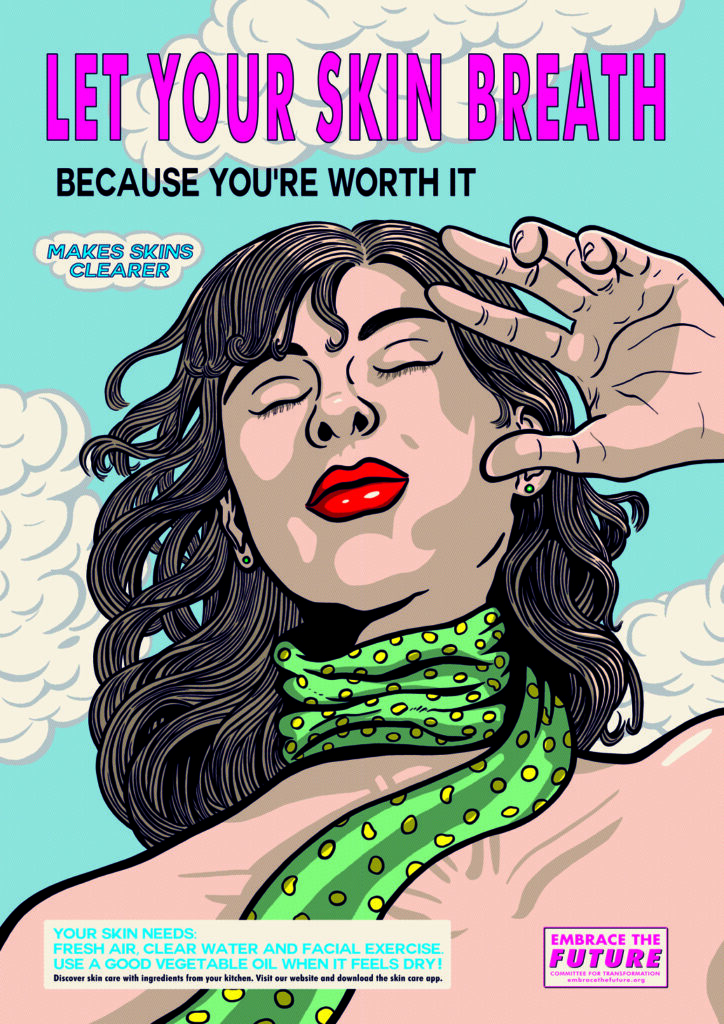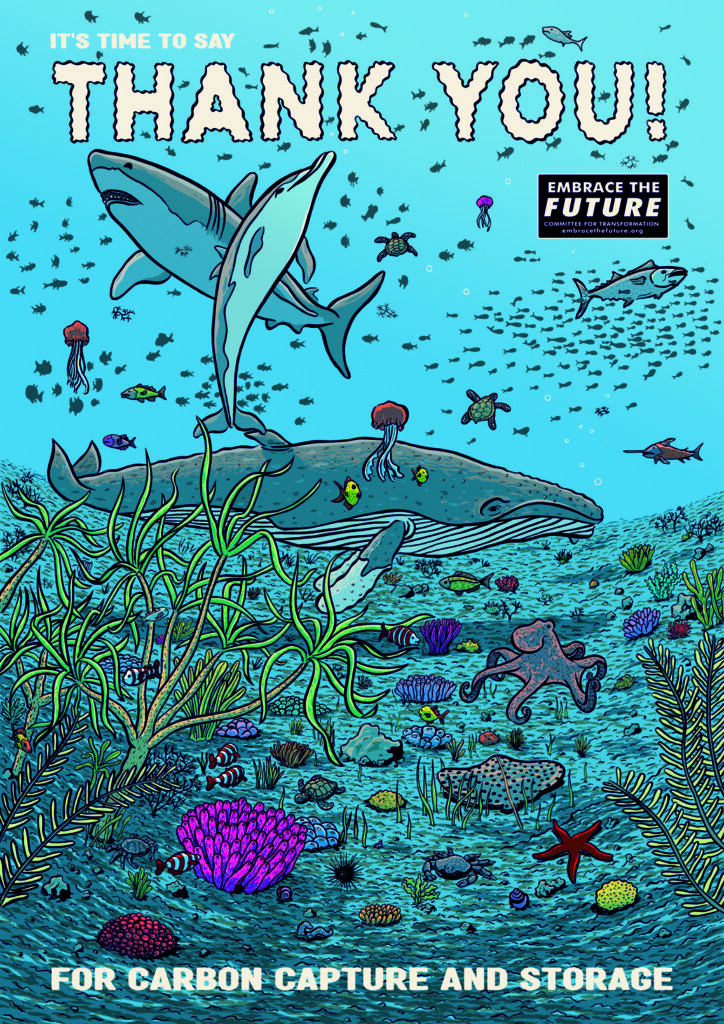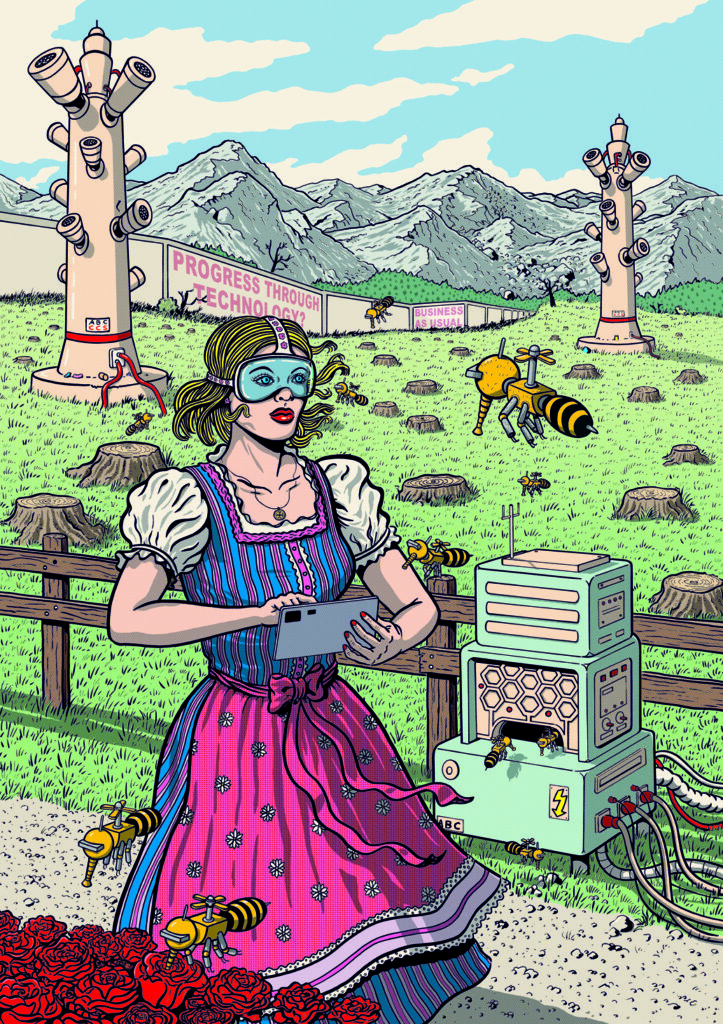Michaela Konrad’s project Embrace the Future is a fictitious image campaign aimed at the consumer-oriented part of humanity that cultivates a western, resource-intensive lifestyle. In the style of classic commercial advertising, she illustrates twelve posters using screen printing. With the subject matter of the posters and their aesthetics, the poster series establishes artistic references to great role models: on the one hand to the WPA (Works Projects Administration) posters, which attempted to counteract the Great Depression during the New Deal in the USA from the end of the 1930s, and on the other hand to the American and British campaigns during the Second World War, which advertised renunciation with a view to a greater goal – resources for the war economy.
The art project focuses on the most important issue of our time: climate change and the question of the right methods to counteract it in time.
The first World Climate Conference on Atmospheric Change took place in Toronto in 1988. At that time, the scientists represented there believed that it would have been possible to mitigate climate change and its devastating effects by slowly reducing CO2 emissions – within the framework of the prevailing economic system – by around 2% per year. But since that landmark conference, a global, neoliberal economic system based on reckless resource and fossil fuel consumption has evolved – and as a result, global Co2 emissions have actually doubled since then.
So we are facing a completely different situation today. The artist Michaela Konrad is convinced that the climate targets we are striving for can no longer be achieved solely by expanding renewable energies and new technologies within our economic system. Economic growth, emissions and resources have not yet been decoupled from each other. And the window of time we have left to avoid the impending, irreversible tipping points is getting smaller and smaller. A drastic reduction in emissions and the associated rationing of resource- and emission-intensive consumer goods and services seems unavoidable if we want to mitigate the worst consequences of global warming.
Relying on immature, future and potentially dangerous geoengineering processes to avoid painful systemic change today could prove to be a self-destructive mistake for our species.
Embrace the Future propagates a system change that aims for an orderly shrunken (circular) economy. The scarce resources are used up by system-relevant institutions such as infrastructure, education, research and the healthcare sector. And above all, they are needed for the energy, transport and agricultural transition. There is no longer enough for superfluous (disposable) consumption.
Michaela Konrad locates her campaign in the near future. At a time when the consequences of global warming are exerting ever-increasing pressure on infrastructure, democracy and social cohesion and radical change has become unavoidable.
The end of soil sealing is leading to a rationing of living space. Individual air travel is being discontinued or strictly rationed. And a large proportion of the population is eating a plant-based diet, as resource- and emission-intensive livestock farming has to be restricted.
Michaela Konrad deliberately leaves open who the imaginary clients of this fictitious poster campaign are. Is it an authoritarian system, an eco-dictatorship that wants to give the prescribed rationing a positive image? Or is it a democratic (world) state that is trying to make the inevitable emergency regulations palatable to its citizens?
The poster series ironically propagates the renunciation of consumer goods and services. This renunciation is advertised using the linguistic and creative means of advertising.
With a twinkle in her eye, Michaela Konrad sheds light on Western society, in which clever marketing strategies and PR campaigns have been appealing to our deep-rooted needs and emotions for over a century in order to motivate us to buy certain products and services. These underlying consumer needs and emotions are the reason why Michaela Konrad believes that people living a Western lifestyle could accept the rationing of consumer goods.
Because if the socio-economic conditions in our society change, our quest for recognition will also take a new direction. So this fictional campaign presents renunciation not as a draconian measure, but as a new lifestyle to be admired for.
